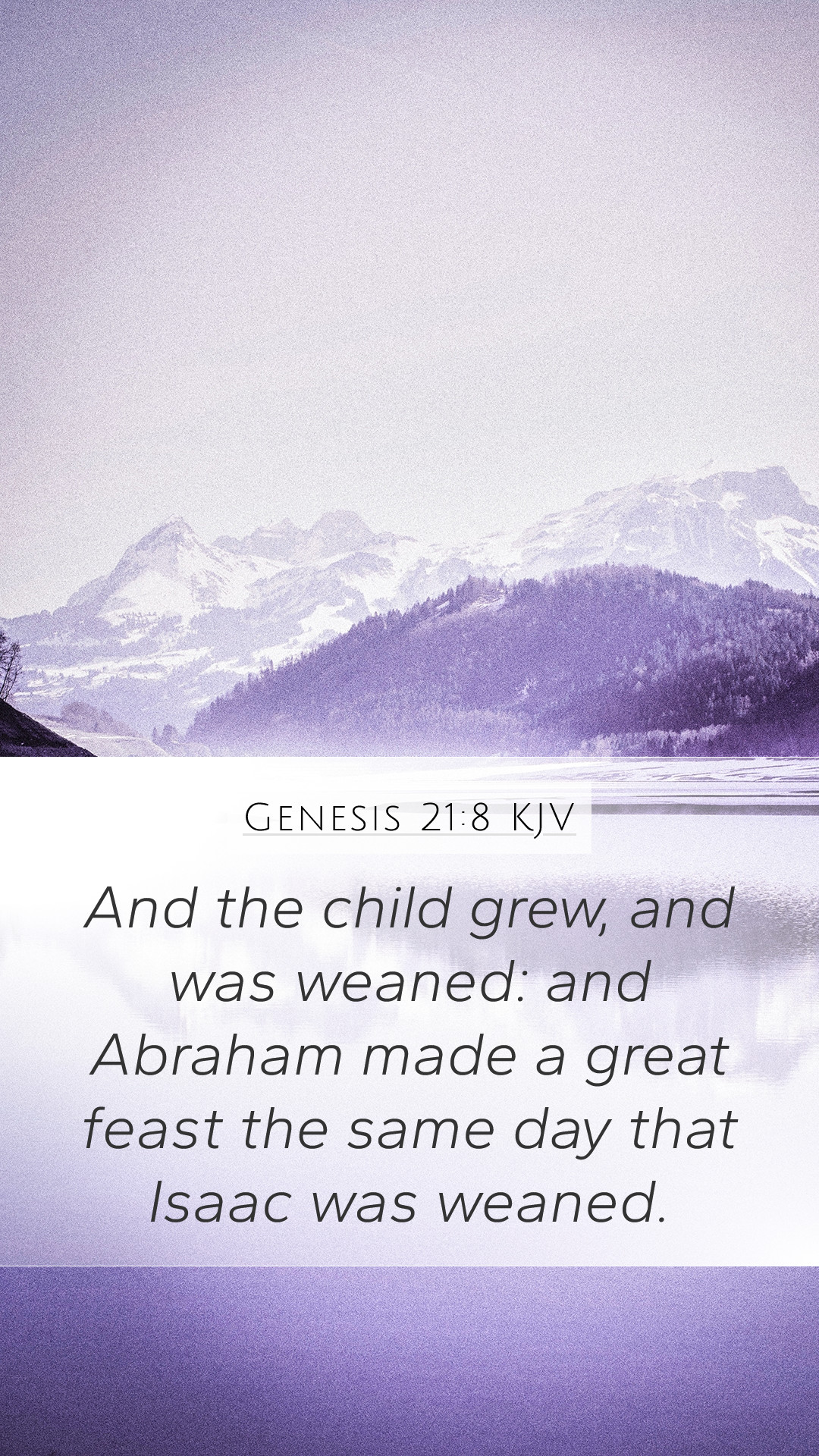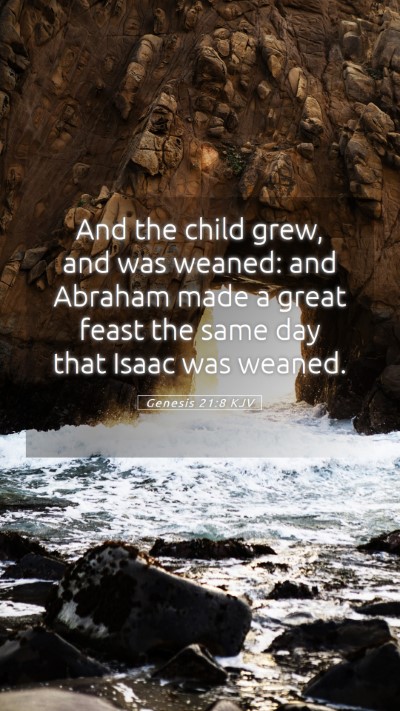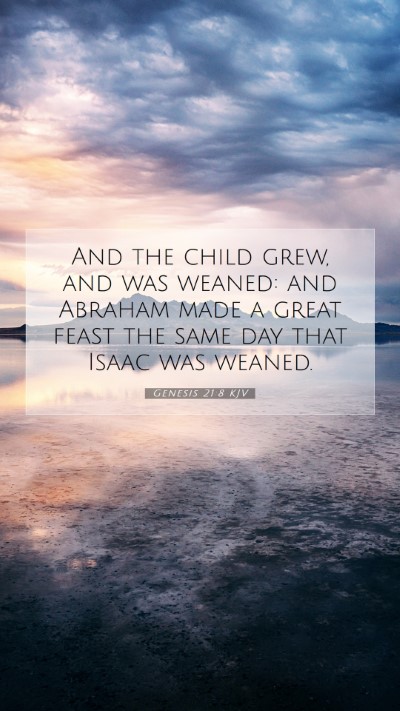Understanding Genesis 21:8
Genesis 21:8 states, "And the child grew, and was weaned: and Abraham made a great feast the same day that Isaac was weaned." This verse captures a moment of celebration in the life of Abraham and Sarah, emphasizing the joy and significance of Isaac's early life.
Bible Verse Meanings
The meaning of this verse can be explored through various lenses:
- Growth and Development: Isaac's weaning signifies an important milestone in his life, symbolizing growth and the moving toward independence. This event is marked by a feast, indicating a time of joy and societal acknowledgment of this new phase.
- Covenant Fulfillment: The birth of Isaac represents the fulfillment of God's promise to Abraham. Celebrating his weaning indicates a celebration of God's faithfulness to His covenant.
- Family and Community: The feast illustrates the communal aspect of ancient society, where family milestones were celebrated collectively, signifying support from the broader community.
Bible Verse Interpretations
Insights from prominent commentaries illuminate this passage:
-
Matthew Henry: He emphasizes the importance of the weaning process, which is a pivotal moment for children. The feast symbolizes not just a personal celebration but one that carries spiritual significance, celebrating God’s promise in their lives. He notes that Isaac's growth points to hope and grace that come through God's provision.
-
Albert Barnes: Barnes focuses on the cultural implications of the act of weaning, which during Biblical times was a significant event. He highlights how feasting represented joy and thanksgiving to God for His blessings. He interprets Abraham's actions as a demonstration of faith and gratitude.
-
Adam Clarke: Clarke provides context regarding the period of weaning at that time, asserting it could be around three years, which points to significant early development. He suggests that the celebration further signifies a return to normalcy and joy after years of waiting and trials for both Abraham and Sarah.
Bible Verse Explanations
This passage holds several layers that enrich our understanding of Scripture:
- Symbolism of Weaning: Weaning represents growth beyond infancy—a transition that many scholars link to spiritual maturity where believers move from the milk of the Word toward solid food (1 Corinthians 3:1-2).
- Feasting as Worship: The act of feasting here is not merely social but deeply spiritual, embodying a sense of gratitude and worship towards God, reminiscent of celebrations outlined in other parts of Scripture such as Deuteronomy 16:14.
- Emphasis on Family: Abraham’s action of hosting a feast after Isaac’s weaning illustrates the importance God places on family and community, resonating with verses that stress the value of family bonds (Ephesians 6:1-3).
In-depth Bible Verse Analysis
Analyzing this verse reveals key insights:
- Historical Context: Understanding the cultural practices regarding child-rearing in ancient times can amplify the significance of Isaac's weaning. Ancient Near Eastern societies placed great importance on child development.
- Theological Reflections: This event serves as a reminder of God’s promise being realized in a tangible way, further pointing to themes of hope within the biblical narrative.
- Personal Application: Readers can draw parallels between their own lives and the joy found in milestones, recognizing both divine blessings and the importance of community support during life’s transitions.
Related Bible Cross References
- Genesis 17:19: God's promise regarding Isaac’s birth.
- Genesis 18:10: The announcement of Isaac's birth.
- Genesis 22:2: This verse reflects on the significance of Isaac in God's plan.
Conclusion
This study of Genesis 21:8 reflects the broader themes within Scripture: faith, growth, fulfillment of God's promises, and the celebration of life’s milestones. Through understanding Scripture, one gains insights that lead to personal reflection and application of biblical principles in daily life.


